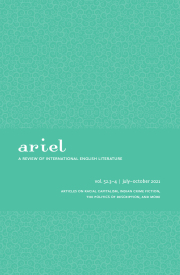Looking Behind Grand Façades: The Ambiguous Visibility of Urban Wealth in The Unknown Terrorist, Saturday, and The White Tiger
Keywords:
urban wealth, (in)visibility, neoliberal city, social inequality, representation of the urban richAbstract
FThe raison d’être of cities is, and always has been, the accumulation of capital. Even so, scholarship on literary renderings of the urban has focussed primarily on poverty and thus contributed to a somewhat one-sided perception of the social inequalities shaping today’s cities. For the sake of a more balanced reading of such inequalities, this essay first reviews work on urban wealth in other fields, before probing into the “fantastic conspicuousness of consumption and affluence” (Baudrillard 25) purportedly characterising modern cities. It argues that conspicuousness is only one aspect of urban wealth, which in actual fact is subject to a neoliberal politics of subterfuge ensuring that capital concentrations are always spectacle and well-screened privilege at once. Drawing on Andrea Brighenti’s theorisation of (in)visibility as a social category, I explore how this politics plays out in the dramatic encounters of urban rich and poor orchestrated in the novels Saturday (2005) by Ian McEwan, The Unknown Terrorist (2006) by Richard Flanagan, and The White Tiger (2008) by Aravind Adiga. In doing so, I show how three otherwise radically dissimilar texts advance very similar ways of seeing urban wealth that a reading focussed solely on disadvantage and abjection cannot reveal.


